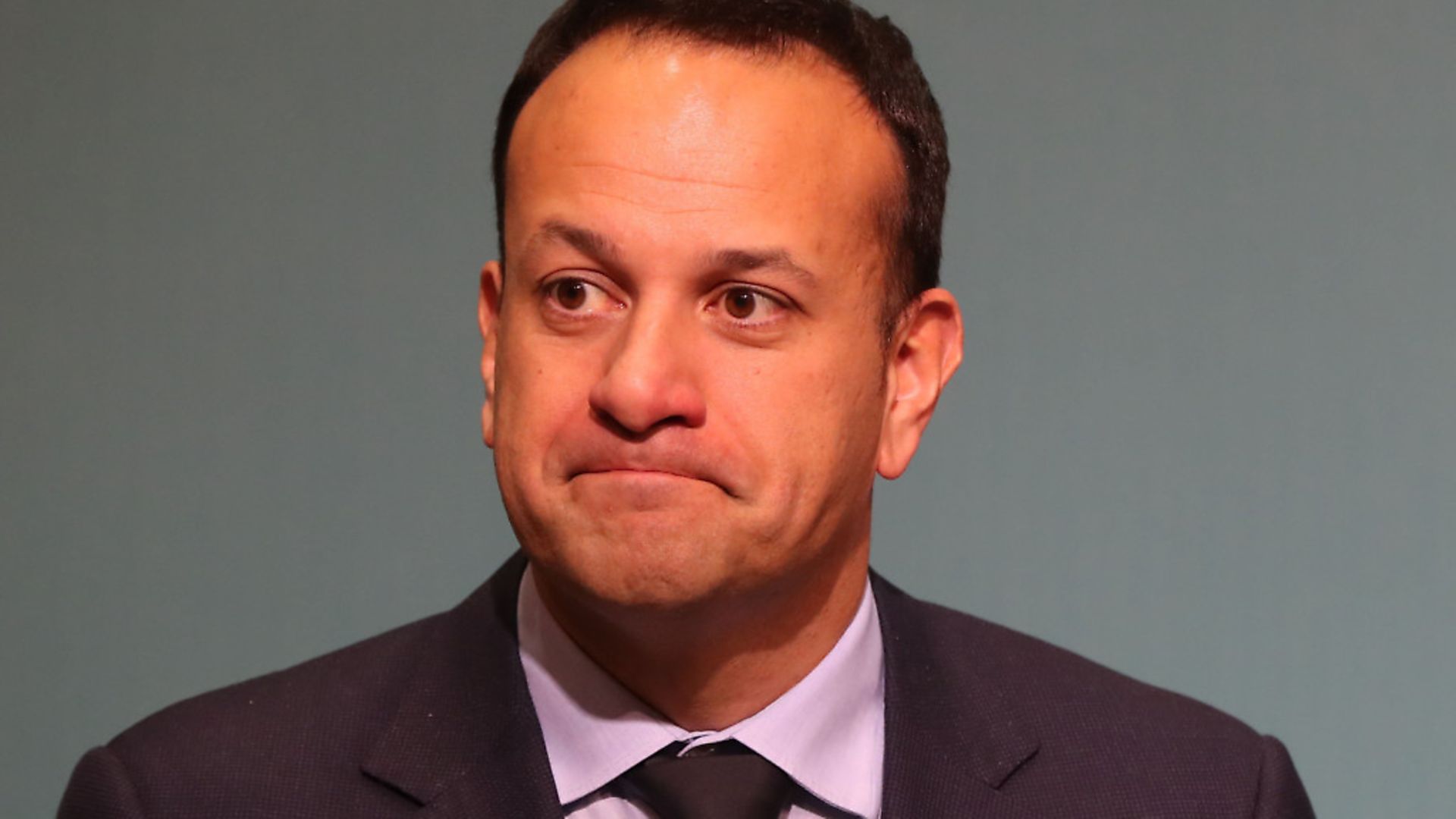
Irish Prime Minister Leo Varadkar has dismissed Number 10’s proposals for people crossing the Irish border to have to pre-register after Brexit.
Speaking from the US, where he is conducting a series of St Patrick’s Day engagements, the Taoiseach said: ‘No, it is not a solution that we envisage.’
Vardkar was responding to questions about a controversial plan reportedly being considered by the government which could mean people crossing the border after Brexit would have to register in advance to avoid checks and delays.
It has been claimed anyone without so-called fast track movement clearance would also have to use approved crossing points or risk being considered to have entered the state irregularly.
The government has said there would be no hard border and no return to the borders of the past when the UK leaves the European Union.
In December, Theresa May agreed to regulatory alignment across the UK to avoid border posts and checks.
Vardkar said it might be helpful if senior cabinet officials such as Boris Johnson and David Davis visited the border to see at first hand that it was ‘invisible’.
‘They would certainly be very welcome to visit the border,’ he said. ‘I know (Northern Ireland Secretary) Karen Bradley has already done that and a delegation of British politicians from the House of Lords and House of Commons have done that too.
‘I think it would be a good idea, I can’t see anything negative in a British cabinet minister viewing the border, seeing what it looks like.
‘As is always the case and this is true for any politicians or anyone in any walk of life you can read as many briefing documents as you like sometimes you need to see things with your own eyes, and I think for that reason, they would be very welcome to visit the border and see it for themselves. And to see that it is invisible.’
Speaking at the South by South West festival in Austin, Varadkar said if a hard border was introduced post-Brexit it could lead to vandalism.
‘The reality is, I don’t anticipate a return to violence, but if you do have physical infrastructure, if you do have cameras and signs and border posts then you know those things will become targets,’ he said.
‘And they will become vandalised. And then what do you do? Do you accept that or do you bring in guards to stop that?’
Warning: Illegal string offset 'link_id' in /mnt/storage/stage/www/wp-includes/bookmark.php on line 357
Notice: Trying to get property 'link_id' of non-object in /mnt/storage/stage/www/wp-includes/bookmark.php on line 37






